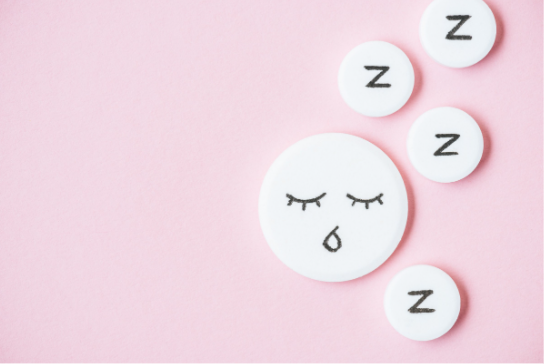
The whole world seems to be tired or experiencing a “mental fog.”
We are living in a society where one in every three of us is not getting enough sleep. There are waaay too many things preventing us from getting a good night’s rest. Some of these are by designed by business interests that want to keep us awake, so our relationship with sleep is not the healthiest. When you consider COVID stresses, streaming videos, and for some, nightlife, it is easy to understand.
Sleep is a topic that should be taken seriously. It is one of the most important aspects of your health and life. Good sleep involves an understanding of diet, exercise, and work/life integration. We know that without a restful, peaceful sleep, we are not our best selves. The goal is to calm our mind and central nervous system.
Sleeping tips for anyone (at any age) can be helpful. Consider the tips below if you are someone who gets up in the middle of the night and can’t fall back to sleep, or if you have a hard time falling asleep once you get into bed.
A few things you should know before I get to my tips. When you wake up in the morning, your cortisol (stress hormone) is high. The reason is because it helps to keep you awake and alert as you get ready for the day ahead. So, ease into the day.
Next, stress, even when you first wake up, will adversely affect your day and your sleep at the end of the day. So, wait before you begin your “work-day.” By this I mean do the personal things upon awakening first – checking voicemail and emails can wait. Ease into the day – many of us check our voice messages and email the minute we get up in the morning. Any given message can certainly start to cause stress or alertness. Then your adrenals jump up, your cortisol (which is a big part of your sleep process) increases, your heart rate may get higher, and you may get anxious. And then you are ‘off to the races’ and you haven’t brushed your teeth yet!
Pay attention to your resilience level. Your resilience level is shaped by your thinking style (look at what energizes you and what depletes you), your individual needs, and your experiences. How have you sustained your resilience during this pandemic? You have to dig deep to persevere and endure. Sleep, diet, and exercise, which many consider trite, are of the utmost importance. I said this above, but it bears repeating: without a restful, peaceful sleep, you are not your best self.
One of the tools that I use for myself and which I use to guide clients is setting up a nighttime routine. People often hesitate or resist setting up a routine, but they really can work. Think about how good it will feel to get a good night’s sleep. You’ll feel refreshed, clear, and ready to take on the day!
Creating a Routine
Be prepared – mentally. Allowing yourself to calm and decompress helps you to relax. You can visualize how you want your day to go. Leave yourself a list of one or two things at the end of the day so it helps you get started the next morning.
Form a habit. Do the same thing each night at the same time, such as turning off everything electronic at nine o’clock; then brushing your teeth and getting into bed. This sends a message to your body. You are telling your body and your mind to settle down instead of your mind telling you how it is going to be and running the show.
In this process, take command of your chatter or self-talk (and therefore your life). Your mind really does sometimes ‘take on a life of its own,’ literally and figuratively, and it’s hard to quiet it down.
Prepare your body and mindset with an intention to improve your sleeping habits, and to create a routine, so you are not sabotaging yourself each night.
Breathing Exercise
Here’s a simple breathing exercise: 4X4X4. Breathe in for 4 seconds, hold it for 4 seconds, and breath out for 4 seconds. You can adjust the seconds with a rhythm that works for you.
Tapping – Emotional Freedom Technique (commonly referred to as Tapping)
Tapping is a wonderful technique where you tap on different points on your body to release stuck energy. When tapping, you are working on the underlying emotional component and the pain or problem while tapping on it. Tapping calms the mind and nervous system. Five to ten minutes of tapping sends signals to the brain, cardiovascular system, nervous system which allows your body to relax and let go. Considering we have 65-70,000 thoughts each day with 77% of those thoughts being negative, tapping can be very helpful. To learn more about it, feel free to contact me with absolutely no obligation. It’s easy to show this to you on FaceTime or Zoom.
You can also visit www.thetappingsolution.com.
Be Vigilant With What You Put in Your Body and Mind
Biochemically it is important what we choose to put into our body and mind (violent shows, the news at bedtime, junk food, our self-talk, any discomfort or pain) as these choices WILL affect us, both positively and negatively. If you watch the news, don’t watch before you go to bed. Cortisol, a stress hormone, is a very big part of the sleep process. Remember, your mind continues to process even as you sleep.
Mind Dump
I keep a pen and pad on my night table. If I have a lot on my mind I write it down to get it out of my head, knowing that I can refer to it in the morning. It allows me to decompress and that process is calming.
Build Your Resilience and a Positive Mindset
Set your intentions and create a nightly ritual that works for you. Because of the negative slant that our brain has, we tend to think of what’s missing rather than focusing on what we have. You must be intentional with your thoughts. You control your thoughts, they don’t control you.
Take command of your life … Make yourself and sleep a priority.


